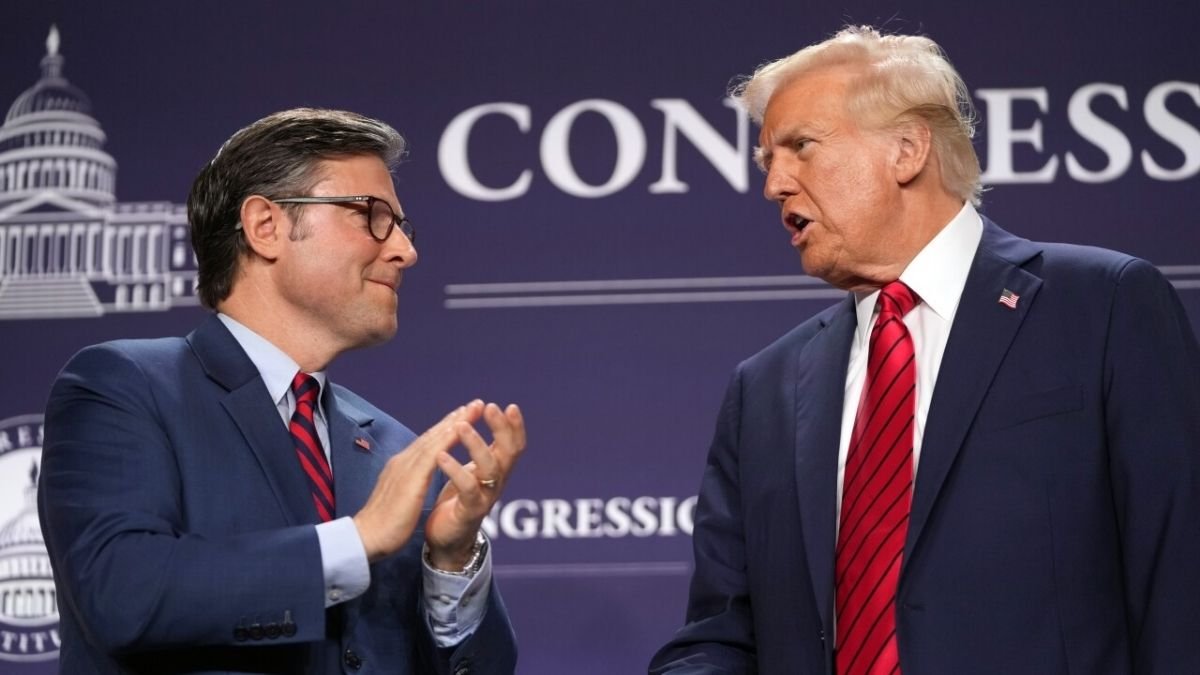Rep. Thomas Massie, a Republican from Kentucky, is pushing a discharge petition to release the Epstein files. The petition is close to forcing a House vote by the end of September. It could move forward even if no more Republicans sign on.
Many House Republicans are caught between their voters’ desire for transparency and former President Trump’s call to drop the issue. The tension highlights a split within the party over handling sensitive investigations.
The White House has privately urged Republicans not to support the petition, Massie and Rep. Marjorie Taylor Greene of Georgia said. They see the move as a direct challenge to leadership and presidential influence.
House Speaker Mike Johnson of Louisiana has publicly opposed the petition. He warns that allowing it could weaken his control over the House floor and set a difficult precedent for future measures.
The discharge petition currently has 216 signatures. That includes 211 Democrats and four Republicans: Massie, Greene, Lauren Boebert of Colorado, and Nancy Mace of South Carolina. A total of 218 signatures are needed to force a vote.
Some right-wing Republicans who have spoken about Epstein, including Anna Paulina Luna of Florida, Tim Burchett of Tennessee, and Ralph Norman of South Carolina, have said they will not sign. They describe it as a personal fight between Massie and Trump.
Upcoming special elections could change the numbers. Virginia’s 11th district will vote next Tuesday to replace the late Rep. Gerry Connolly. Democrat James Walkinshaw is expected to win in a district that favored Vice President Harris by 34 points.
In Arizona, Democrat Adelita Grijalva is running to replace her father, the late Rep. Raúl Grijalva, in the 7th district. The seat went for Harris by 22 points last year. Both candidates have said they will sign the petition if elected.
If the new Democrats follow through, the petition would reach the 218-signature threshold needed to force a vote. Trump and Johnson still have options to respond, including persuading Republican signers to withdraw support.
Johnson has previously used procedural tactics in party-line measures to stop petitions. In April, he blocked a proxy voting petition but eventually negotiated a quiet end to that issue.
Massie argues the Epstein files matter more to the public and the GOP base than proxy voting. He believes Johnson will have a harder time stopping this petition than past efforts.
If the petition succeeds, Republicans, especially conservatives, will face a difficult choice. They must decide between following party leadership and responding to voter pressure for transparency.
The outcome of the petition could shape how sensitive investigations are handled in the House. Both the White House and the GOP leadership are closely monitoring the situation.
Rep. Massie said, “This is about giving the public the information they deserve. Republicans and Democrats alike want transparency.” Greene echoed this, calling it a test of congressional accountability.















